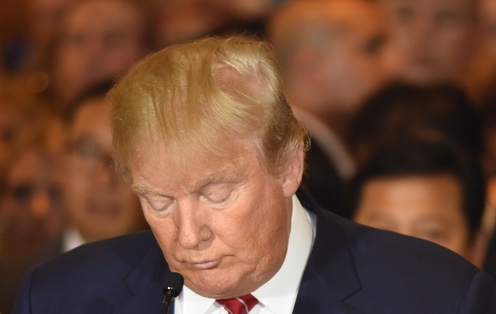Dunning and Kruger revisited

The Dunning–Kruger effect is a hypothetical cognitive bias stating that people with low ability at a task sometimes overestimate their own ability, and people with high ability at a task usually underestimate their own ability. Even intelligent people are susceptible to it.
In the storied history of human endeavors I know of no activity more prone to the Dunning-Kruger effect than the ability to write poetry. It seems to me that more people are wrong about being good poets than they are wrong about being good drivers. My autonomic reactions are permanently set for Cringe whenever someone asks me if I would like to read their poetry. I already know what I am in for and I am seldom wrong: rhyming couplets, forced meter that doesn’t even try to scan, verses full of cliche-ridden, obvious platitudes.
I hate to break it to the would-be poets of the world out there but finding words that rhyme is not the sole talent a poet must possess. It’s not even the beginning of poetry, let alone the end. Don’t quit your day job just yet.
All of which is to say, most of us (probably even nearly all of us) are prone to the Dunning-Kruger effect once in a while. My excursions into it began with a youthful ambition to become a Major League Baseball player, and they didn’t stop there. For the most part our flirtations with Dunning-Kruger Land are usually harmless, but they can also be deadly.
The more intelligent you are, the likelier you are able to distinguish reality from fantasy, and the likelier you are to accurately assess your own abilities. I’m thinking just now of Frank Abagnale Jr, the famous imposter and subject of the movie “Catch Me If You Can.” He used to pretend to be an airline pilot in order to cadge free plane rides as a deadhead. The difference was he always knew he was pretending. An interviewer once asked him what he would have done if somebody had actually asked him to fly a plane. Abagnale admitted, “I would immediately give myself up as an imposter.”
Thank goodness Mr. Abagnale wasn’t like some Trump supporters. One can easily imagine them saying to themselves something like, “Golly, flyin’ a airplane, how hard can it be?”
On separate occasions Albert Einstein was asked by a conductor to be the soloist in a performance of the Mendelssohn Violin Concerto and (in 1952) he was offered the presidency of Israel. He turned both down. Einstein understood his limitations in a way many of us mortals do not.
Like bad spelling, bad punctuation and bad grammar, the Dunning-Kruger effect isn’t the exclusive property of conservatives, it’s just over-represented there. For instance conservatives are more likely to consider celebrity as a qualification for high office. Hence Ronald Reagan, Arnold Schwarzenegger and Donald Trump are all Republicans. Conservatives are more likely than liberals to reject science, what we used to refer to as “failing” when I was in high school.
The problem with life on the Dunning-Kruger continuum is, the further you are to the right of the scale the less reachable you are. Like with a black hole, there comes a no-escape event horizon where no amount of logic or experience will ever convince you you’re wrong. Many people with absurd and evidence-free faith in their own talents don’t even understand the Dunning-Kruger effect no matter how lucidly it’s explained to them.
When the coronavirus pandemic began, I believed that most anti-maskers would be converted when they noticed people around them were dying. Once medical science hit upon a family of vaccines I also thought vaccine hesitancy and anti-vaxxers would eventually largely disappear. I now see I was wrong. Conversion, when it happens at all, usually takes place on somebody’s death bed, and by then it’s too late.
It is therefore with great reluctance that I reach the following conclusion. I don’t think vaccines are ever going to free us from this pandemic until they become mandatory. Draconian laws forcing people to get vaccinated, practice mask-wearing and social distancing must be passed. Violations of those laws should render the lives of the lawbreakers extremely difficult.
We largely (and maybe even exclusively) have Donald Trump to thank for this. Trump is the one who politicised the pandemic to its current extent — and conspiracy theories quickly followed.
I hasten to add that conspiracy theories about vaccines existed long before coronavirus or Trump came along. But Trump gave them wings and anti-vaxxer sentiment has thus infected the rest of the world. Ignorance has now become a pandemic, and even Donald Trump gets booed by his own people when he tries to reel it back in. It is a monster that has permanently escaped his control.
Not that Trump cares, of course. The horrors he unleashed on the world — renewed anti-science ignorance and a resurrected emboldening of fascism — has harmed our chances of getting out of the pandemic and solving the problem of global warming. The evil that Trump has visited upon the world could very well lead to our doom. Donald Trump is the greatest menace ever unleashed in my lifetime, and he may be the worst thing ever to happen to planet earth. Let’s steal his thunder and ruin his influence: stay active, stay vocal, stay vigilant and vote. And, as ever, ladies and gentlemen, brothers and sisters, comrades and friends, stay safe.

Robert Harrington is an American expat living in Britain. He is a portrait painter.
